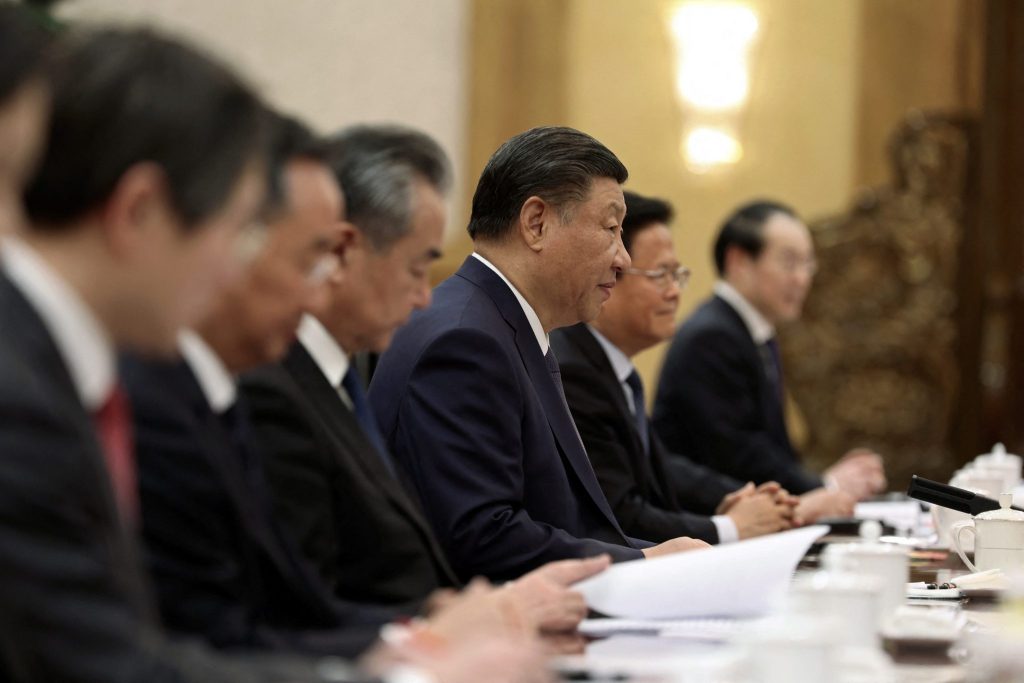In a world marked by great power competition but striving for global development, the Chinese Communist Party’s (CCP) development model has garnered significant attention. But can the development model that has served Chinese leaders’ policy and political goals so well be generally applied across the Indo-Pacific to similar ends?
The answer to this question lies in various aspects of the model of ‘viable development’ that the CCP has embraced.
Viable development is a concept that refers to the construction of a functioning political economy that aligns domestic characteristics with the globalising world order to advance the well-being of those living within the affected state. Deng Xiaoping’s economic reforms in the late 1970s created a socialist state-directed market capitalist development model in China.
This model has benefitted China and the global community as acknowledged by the World Bank, with statements such as: ‘Since China began to open up and reform its economy in 1978, GDP growth has averaged over 9 per cent a year, and more than 800 million people have lifted themselves out of poverty’. From socialist economics to embracing liberal and mercantilist policies and establishing special economic zones to gain access to foreign capital, technology and markets, China’s development is remarkable.
Xi’s dream for China revolves around the ‘great rejuvenation of the Chinese nation’. Under his leadership, China has launched development projects such as the Belt and Road Initiative, which aims to enhance connectivity and cooperation across multiple states. While the initiative is promising, it does not align domestic considerations with the globalising world order. Instead, it attempts to revise the global order to fit its domestic attributes.
Under Xi’s leadership, the CCP has eliminated the two-term limit, centralised power, purged political rivals, disciplined elites and continued to commit human rights violations. This shift from authoritarianism to totalitarianism has imposed party interests over the market and capitalism, as exemplified by the treatment of business leaders like Alibaba’s Jack Ma.
This raises questions about whether China’s transformation is truly a triumph of socialism as Xi insists, or the result of access to foreign capital and technology as well as trade via the globalising liberal rules-based market brought about by Deng. While socialist state-directed market capitalism has lifted millions from poverty, it also poses a dilemma for the Chinese population. They are caught in a political conundrum between poverty and party control — whether they have developed through less intervention by the state and greater freedom within a global market capitalist economy or through sacrifice for the socialist utopia.
When evaluating whether the CCP’s socialist state-directed market capitalism is viable as a global development model, it is important to highlight that CCP development in China hinges on party authority, political control through isolationism, economic liberalism and the continued access to global resources and markets. The model presents challenges in the Indo-Pacific region, with political issues like threats to democracy and human rights as well as economic concerns such as debt traps and environmental sustainability.
The CCP’s ‘how-to-develop narrative’, which attributed success to socialism challenges the global order — posing threats to liberalism, capitalism, human rights and democracy, since it requires political control and party authority. This also raises questions about a potential new Cold War, as states dependent on the stability of the present globalising liberal rules-based market system attempt to protect it.
The CCP’s present narrative, which attributes its development to the socialist model, threatens its own development and that of other states. This politicised approach to development primarily serves its own survival as an elite vanguardpolitical party. Yet, to succeed, it compromises economic development and requires individual sacrifices, making it less viable.
Beijing’s approach is hegemonic and threatens global stability. While the CCP may be able to sustain China’s domestic development due to China’s size, smaller states don’t have this same capacity and require the rules-based liberal global market which underpins global development. Countering hegemonies and ensuring the security of democratic Indo-Pacific states may require the formation of mercantilist blocs.
States in the Indo-Pacific region must pursue unique development models, seek external support that aligns with their goals and the globalising world order and resist interventions that undermine their unity. Creating a common understanding of the China–US rivalry and passing region-wide policies can enable collaborative interaction for the benefit of viable development.
The CCP’s development model is complex and often misunderstood. In an era of great power competition, the CCP’s approach to development has far-reaching implications for China and the Indo-Pacific. This discussion underscores the need for a nuanced understanding of the dynamic landscape and the importance of formulating strategic responses to these challenges.
Jonathan Ping is Associate Professor at the Faculty of Society & Design, Bond University.


I am surprised that this piece has passed the test of your double-blind peer review process. It is replete with assertions that are either unexplained or unreferenced, or full of unexplained inconsistencies. It asserts, for example, that the Chinese regime has shifted from ‘authoritarianism to totalitarianism’ by imposing state controls over internet entrepreneurs such as Jack Ma. The citation cited to validate this assertion, John Lee at the Hudson Institute, does no such thing. The author appears innocent of the issues of regulation of the financial dimensions of Alibaba’s financial business. It asserts that ‘CPC development hinges on party authority, political control through isolationism, economic liberalism and the continued access to global resources and markets’ without consideration of the deep inconsistencies between these policy tools and objectives and what that might mean for understanding the complexity of the nature of the political economy in the Chinese state. It asserts that ‘Beijing’s approach is hegemonic and threatens global stability’ without any argument or credible reference to support the assertion. In short, ideological propositions trump analysis at every step.